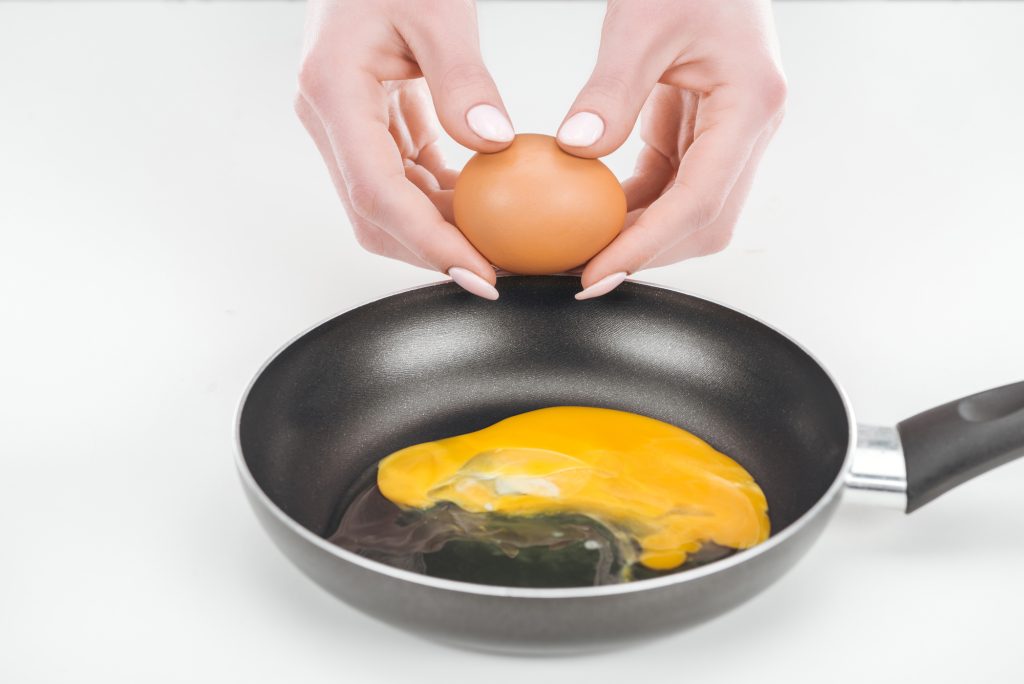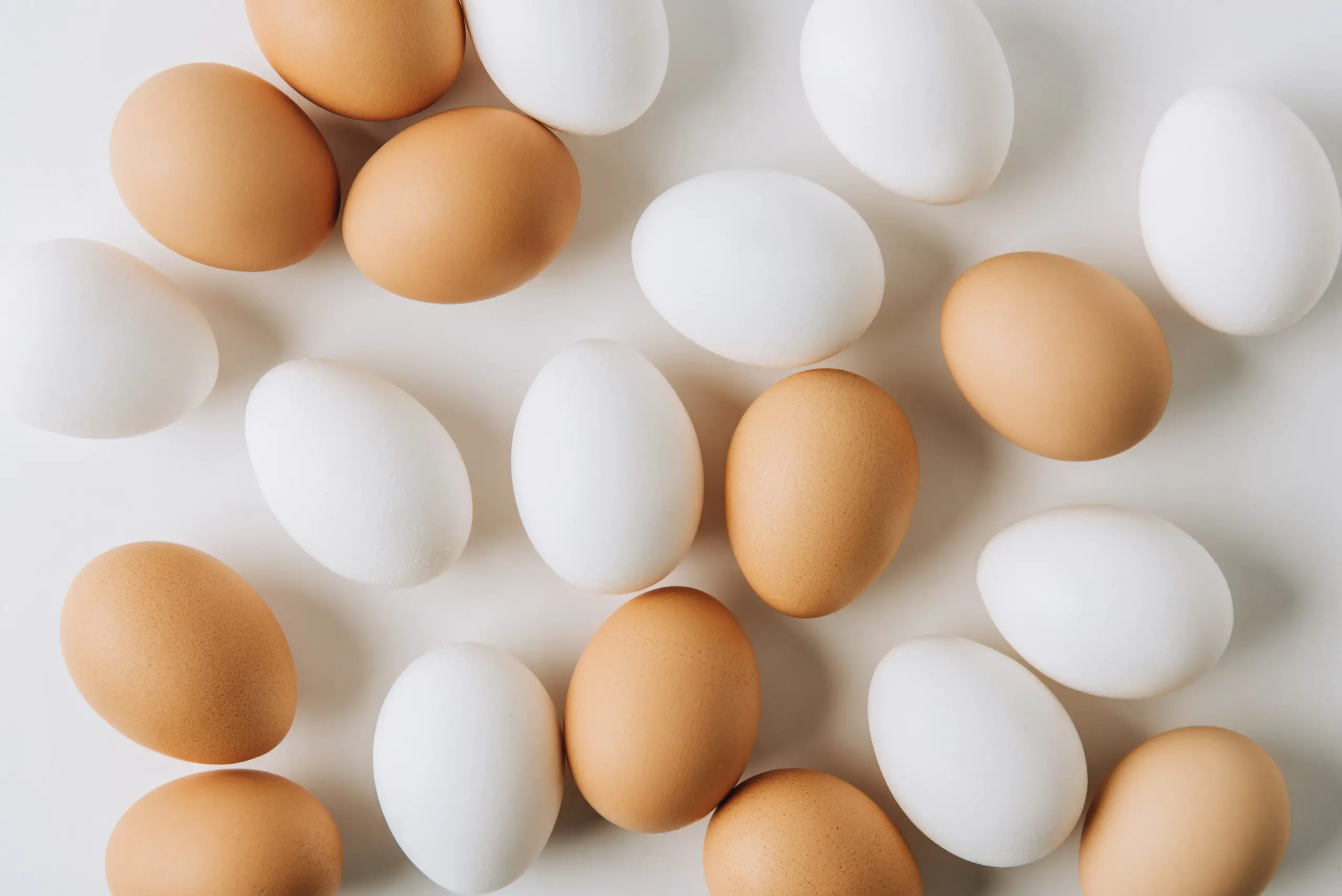Protein is an essential part of a balanced diet, and eggs are one of the best sources of protein for many. But how many eggs must you eat to get 50g of protein?
It’s important to know how much protein you need to reach your daily nutritional goals. Eating too much or too little protein can be counterproductive to your health goals. If you’re looking for an easy way to get more protein in your diet, then eggs may be the answer.
In this article, we’ll be looking at the question of how many eggs make up 50g of protein so you can successfully meet your daily protein requirements. We’ll also explore other ways to get enough protein in your diet, as well as some tips on how to choose the best eggs for optimal nutrition. So let’s dive right in!
How Much Protein Do You Need To Build Muscle?
How much protein do you need in order to build muscle? The answer depends on several factors, including your size, age and activity level. Generally speaking, the recommended daily intake of protein is 0.8-1.2 grams per kilogram of body weight. For an average adult, this amount equates to a minimum of 50g of protein per day.
So, how many eggs make 50g of protein? It all depends on the size and type of egg. On average, it takes about 7 large eggs to make 50g of protein. However, if you opt for jumbo or extra large eggs, 6 might be enough, while 5 could be sufficient for medium-sized eggs. Depending on the type you choose (chicken, duck or quail), the amounts may vary slightly as well.
In addition to eggs, there are plenty of other sources that contain high levels of protein – from whole grains and nuts to dairy and fish products – so you’re sure to find something that fits your taste and nutritional needs!
How Much Protein Is in an Egg?
It may come as a surprise, but the average-sized egg contains 6-7 grams of protein. Egg whites contain 4-5 grams of protein, while egg yolks provide 40% of an egg’s protein content. While the egg white has more than double the amount of protein, it’s important to remember that much of the nutritional benefits come from the yolk—including fat soluble vitamins and minerals such as iron and folate.
For those looking to reach their total 50g protein goals for the day, approximately 8 large eggs would provide just that. However, because eggs vary in size and contain varying amounts of protein, your best bet is to weigh them out in order to get an accurate amount. For example, one large egg may weigh up to 50g with its shell intact!

How Many Eggs Make 50g of Protein?
The simple answer is this… Since there are 6 grams of protein in an average egg, You will need to eat 9 whole eggs to make 50g of protein. You will actually end up with 54g from 9 eggs, but better to be over than under!
It’s easy to get your daily dose of protein with eggs – but how many eggs do you need? Calculating exactly how many eggs make up 50g of protein is simple.
1 large egg contains 6.3g of protein, so if you eat two large eggs, you’ll get 12.6g of protein – almost 25% of your recommended daily protein intake. An extra large egg contains 7.3g of protein, so if you eat seven extra-large eggs, you’ll receive 50g of protein.
Eating eggs is a highly convenient way to up your daily protein intake – and also helps to keep you feeling full for longer periods of time. Plus, they are far better for the environment than some other common sources of animal-based proteins and provide a range of essential vitamins and minerals not found in other sources.
Benefits of Eating Eggs for Protein
Eating eggs as a source of protein offers several health benefits. Not only are they high in nutrient content, vitamins, and minerals, but they are also high in protein and filling, heart-healthy unsaturated fats. Eating eggs can help decrease malnutrition and improve overall muscle health.
One large egg contains about 6 grams of protein. This means that eating 8 large eggs will provide the recommended 50g of protein for an adult male or female per day. Furthermore, eggs are affordable and available in most stores, making them an accessible and convenient choice for a high-protein snack or meal.
For those who don’t eat meat or dairy products, egg protein is one of the most useful alternatives for getting the necessary daily amount of protein without having to rely on animal-based products. Not only that, but its combination of nutrients can help support muscle growth and strength far better than plant-based proteins alone.

Tips to Make Sure You Get Enough Protein From Eggs
Eggs are a great way to get in your daily protein intake. But how many do you need to reach the desired 50g? Here are some useful tips to help you make sure you’re getting enough protein from eggs:
Eat the Yolk
Eating the yolk of an egg provides about 6 grams of protein. If you’re trying to reach 50g, eating the entire egg is a good place to start.
Know the Serving Size
2 large eggs contain 13 grams of protein, making them an excellent on-the-go snack or meal. If you’re ever in doubt, remember that 2 large eggs can go a long way in reaching your daily goal of 50g of protein.
Enjoy Egg Protein Benefits
Studies have found that egg protein can decrease appetite and lead to weight reduction, suggesting it’s more filling than other proteins like carbohydrates or fat. So if you want to shed a few pounds without sacrificing your protein intake, look no further than adding a few eggs into your diet!
Other Ways to Get 50g of Protein
If eggs aren’t your favorite way to get your daily protein, there are other options. For example, five ounces of tilapia provides 50g of protein, as does a scoop of whey powder mixed with eight ounces of unsweetened almond milk. If you’d prefer a vegan option, one cup of egg whites provides 26g of protein.
Whichever option you choose, you can be confident that you’re getting the protein boost necessary to support your muscle growth and energy.
Conclusion
When it comes to how many eggs make 50g of protein, the exact amount depends on the size of the egg. Generally speaking, three large eggs provide around 50g of protein, while five to six extra-large eggs offer the same amount.
But while eggs make a great source of protein, it’s important to remember that they are also high in cholesterol and contain saturated fats. If you’re looking for an alternative way to get 50g of protein, plant-based foods like legumes, nuts and seeds can provide a good alternative.
No matter what you choose, it’s important to get the right amount of protein for your body and lifestyle, and eggs can certainly help you get there. Knowing how many eggs make 50g of protein can make it easier to plan ahead, so you can make sure you’re always getting the amount of protein your body requires.


